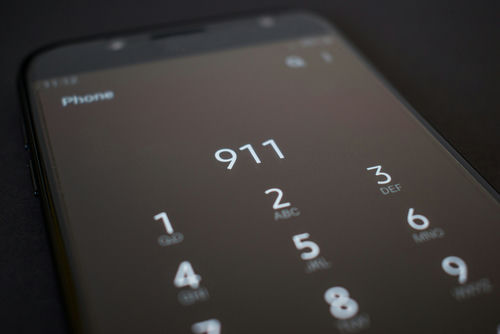When the 911 system goes dark across Pennsylvania, who do you call—and who should be held accountable when the backbone of public safety collapses while politicians and tech vendors point fingers in every direction but their own?
Pennsylvania’s 911 Outage: Modernization or Manufactured Crisis?
On July 11, 2025, the very system millions depend on in their darkest hour—911—simply gave out across the Commonwealth. It started in Delaware County, but within an hour, the entire state’s Next-Generation 911 (NG911) network, the one that was supposed to be more “reliable” and “cutting edge,” sputtered to a halt. The Pennsylvania Emergency Management Agency (PEMA) issued alerts telling the public to use non-emergency lines, or, in the most chilling twist, to “call the local police station directly.” This was not a test. This was a full-blown system failure in a state with nearly 13 million people and no backup plan that was ready for prime time.
For almost half a day, emergency calls went missing, critical data like caller location and phone numbers vanished, and operators were forced to resort to backup numbers and manual rerouting. As the hours ticked by, the public’s faith in the system eroded even further—because, let’s be honest, if the government can’t even keep 911 running, what exactly are we paying for? Lawmakers and local officials were quick to assure everyone that “most calls were still delivered,” but with less information, less speed, and a whole lot less certainty. If you’re a parent, a senior, or anyone with something to lose, that’s not exactly comforting.
Who’s in Charge When No One’s Accountable?
At the center of this mess is a tangled web of government agencies, private vendors, and politicians. PEMA and Governor Josh Shapiro rushed out statements urging calm and promising investigations, but the real story is written in the details they’d rather you overlook. Pennsylvania, like so many other states, has outsourced its emergency response backbone to private companies—vendors that answer to their own shareholders first, and the public last. When the system crashed, these vendors became both the technical “experts” and the scapegoats. But who signed the contract? Who signed off on the technological leap before the bugs were worked out? The answer, of course, is your elected officials, eager to show off shiny new tech paid for by your tax dollars, but apparently not so eager to ensure it actually works.
Pennsylvania
“Don’t call 911 because it’s down”Person having emergency
“Oh ok cool. I’ll just wait” pic.twitter.com/lMcKTRc1xu— The Tape Don’t Lie
(@eaglesfilmstudy) July 11, 2025
The outage didn’t happen in a vacuum. In 2025 alone, eight other states saw similar 911 failures, all while our leaders crow about “modernization” and “public-private partnerships.” The reality is that these deals too often mean less transparency, less accountability, and less actual control over the infrastructure that keeps us safe. When it all goes wrong, who gets left holding the bag? Hint: It’s not the vendor CEO. It’s not the governor. It’s you, the taxpayer, and the first responder forced to improvise while politicians dodge blame.
A Glimpse Into the Future—If You Like More Government, More Excuses, and Less Security
By July 12, PEMA declared the system “fully restored.” But the cause? Still under investigation. Cyberattack? Nope, ruled out. Recent software update? Not this time. Just a “network disruption,” the kind that happens when you build a critical system on a house of cards. Meanwhile, the talking points pour in: “Lessons learned,” “greater redundancy,” “increased investment.” Translation: more of your money poured into the same black hole, with the same lack of oversight, and the same politicians looking for a photo op the next time they patch a hole in the dam with duct tape and good intentions.
BREAKING! 911 Intermittent OUTAGE, State wide!
pic.twitter.com/CZVb5PstGZ
— In2ThinAir (@In2ThinAir) July 11, 2025
The human cost is real. Delayed emergency response, families left in the lurch, local agencies forced to scramble and reroute calls through backup systems designed for minor hiccups, not total system collapse. This isn’t just a Pennsylvania problem. It’s a warning shot across the bow for any state that thinks outsourcing and endless tech spending can replace common-sense safeguards and real oversight.
Who Will Protect Us When Government and Big Tech Can’t—or Won’t?
The aftermath of this outage leaves us with hard questions and even harder truths. If the most basic function of government—protecting its citizens—can be outsourced, glitched, and shrugged off, what’s next? Americans are sick and tired of being told that “glitches happen” when their safety is on the line. We demand accountability, not empty reassurances. We want real answers, not another round of finger-pointing and budget increases for the same failing systems. Until the people in charge start treating our security as their first, second, and third priority—not a bullet point on a campaign website—expect more of these “unexpected” failures. And expect more Americans to ask, loudly and clearly, why the government that can’t keep 911 running thinks it can run anything at all.
Sources:
Click this link for the original source of this article.
Author: Editorial Team
This content is courtesy of, and owned and copyrighted by, https://www.conservativecardinal.com and its author. This content is made available by use of the public RSS feed offered by the host site and is used for educational purposes only. If you are the author or represent the host site and would like this content removed now and in the future, please contact USSANews.com using the email address in the Contact page found in the website menu.








